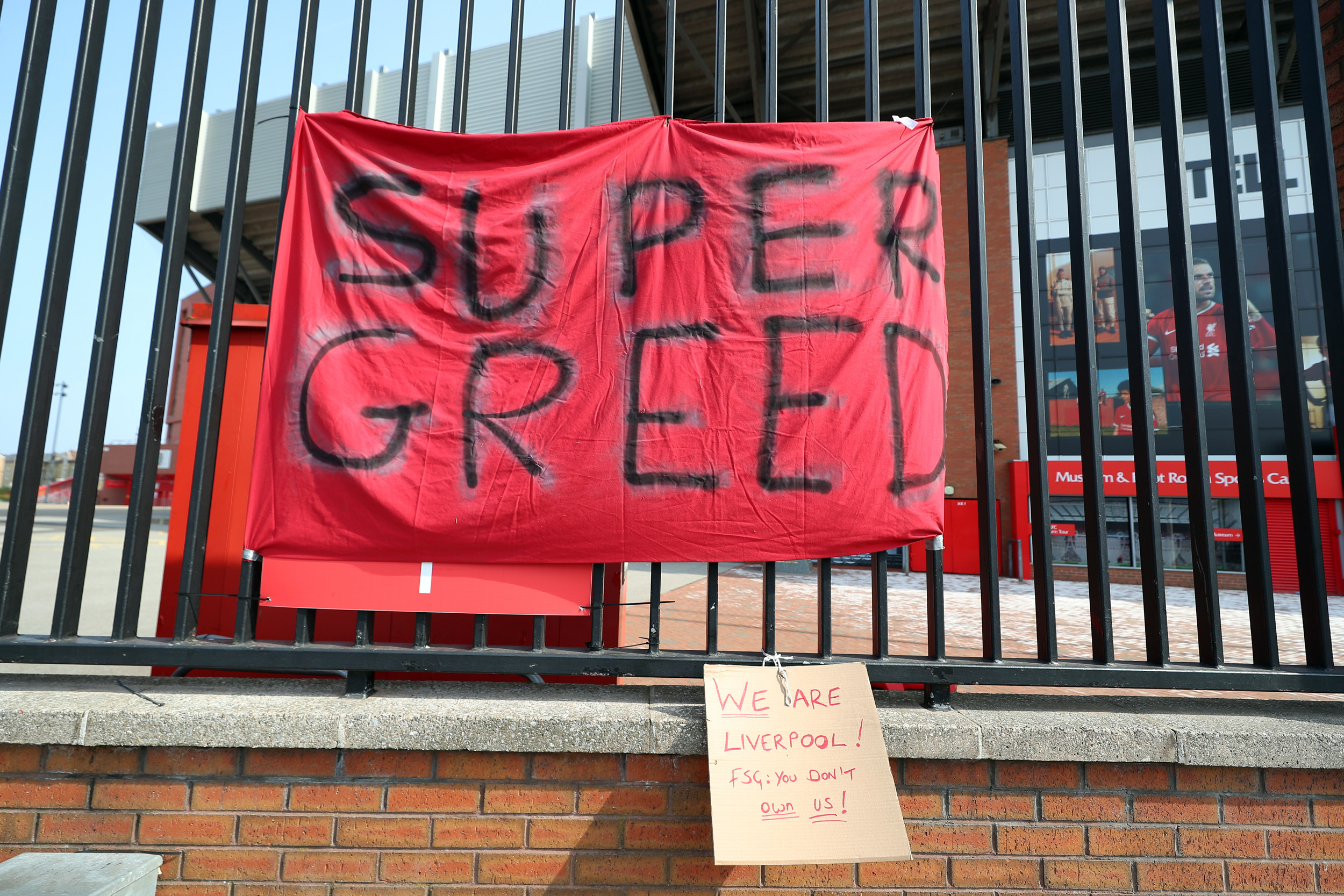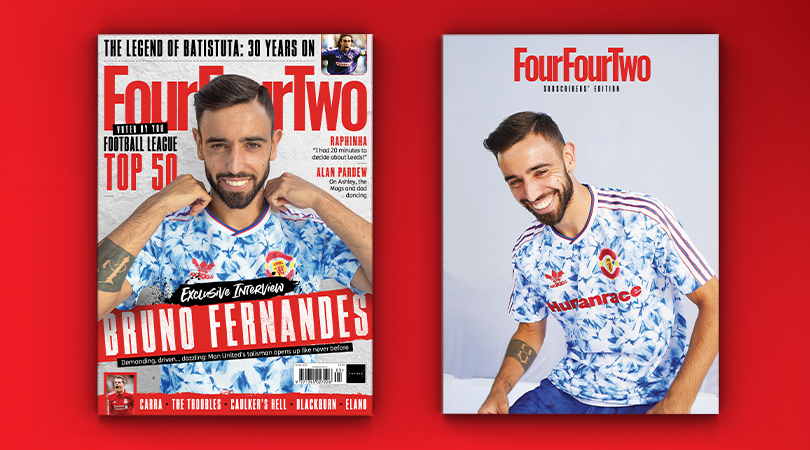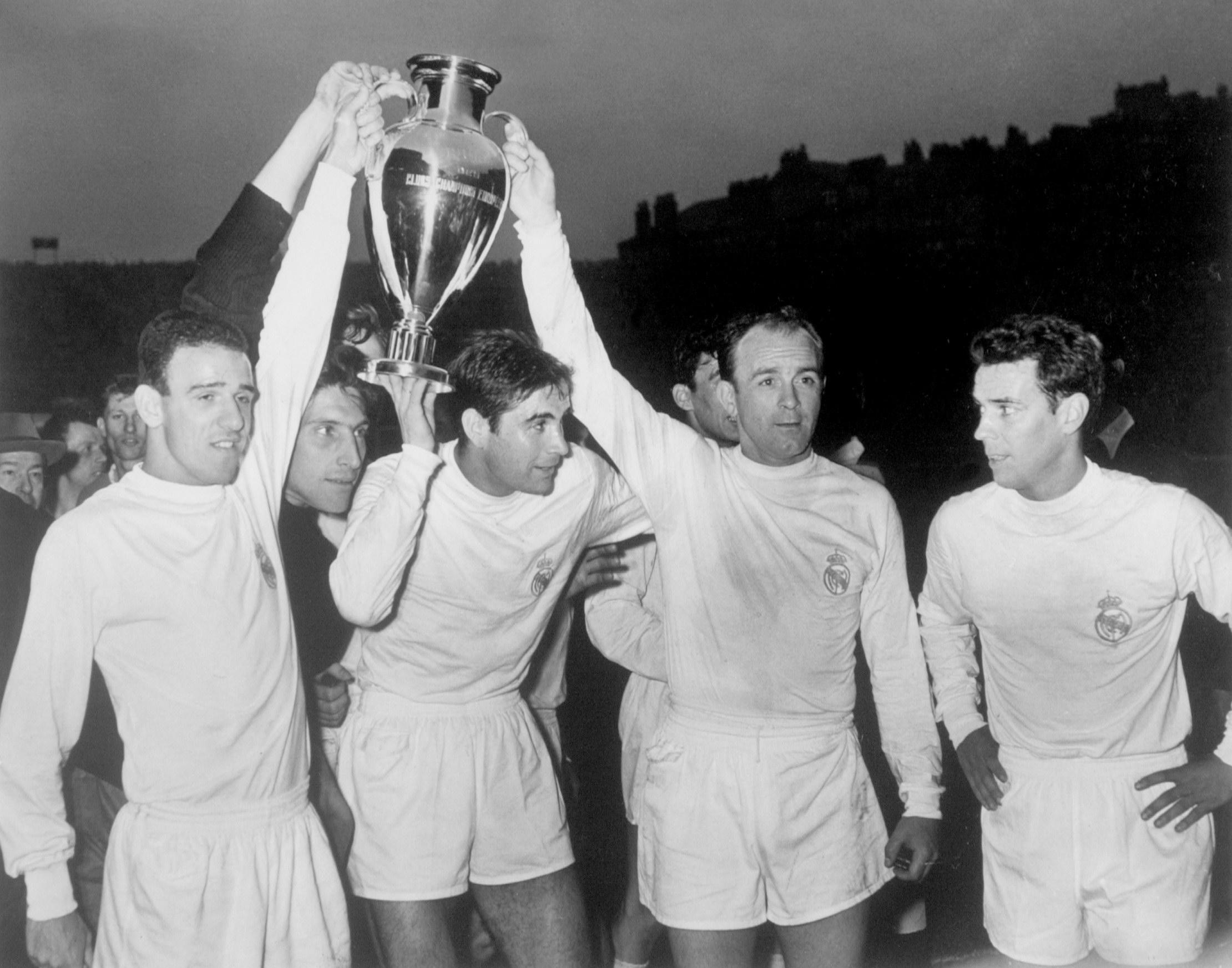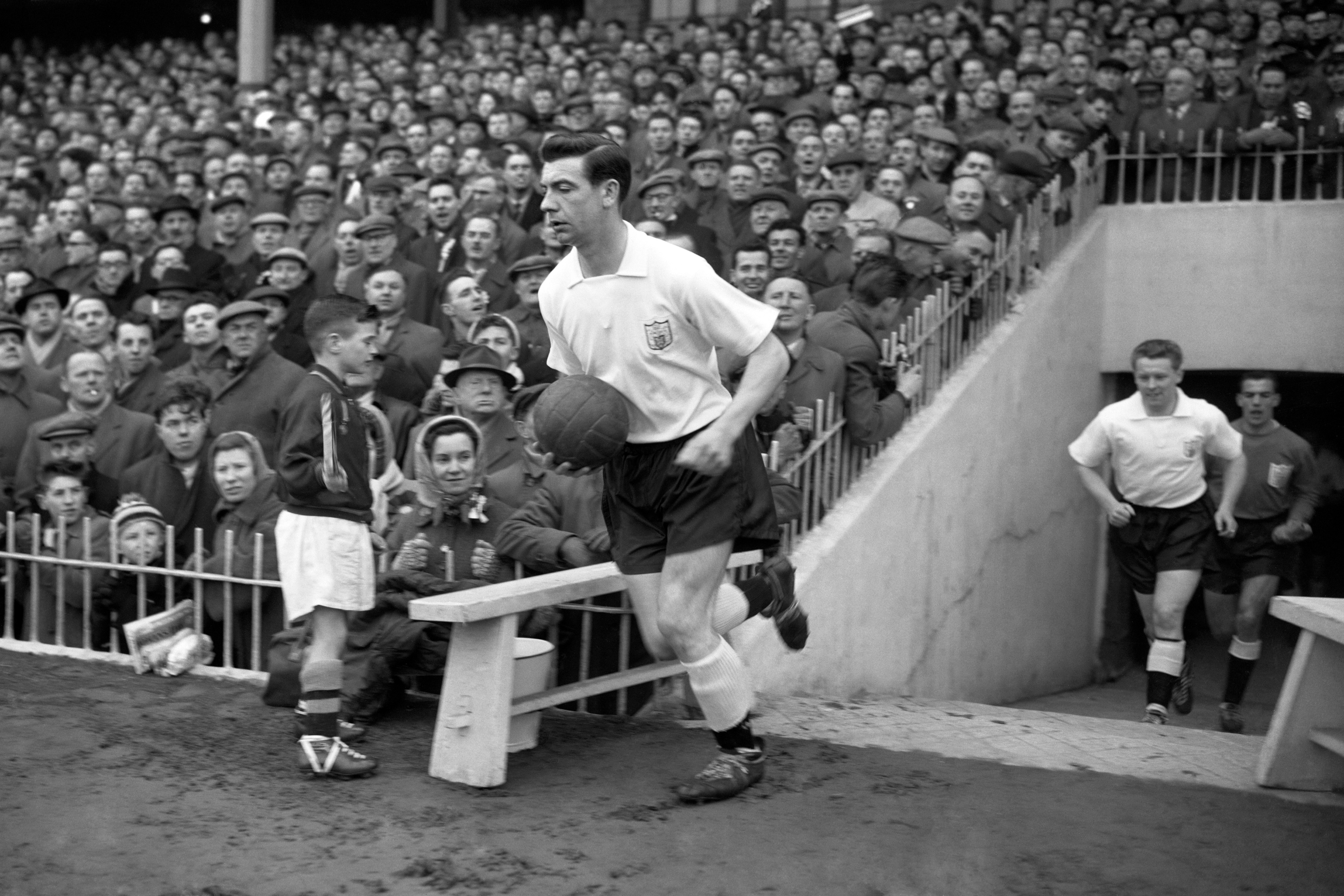The six steps that made the Super League inevitable
You couldn’t call it unexpected, says Gary Parkinson – this has been in the pipeline for decades

So they’ve decided to jump, then. A dozen desperadoes, half of them from the English league, have declared their intention to finally cut themselves loose from the pesky proletariat and create a Super League of their own design, built to their specifications, custom-crafted to make them richer.
PUNISHMENT Euro 2020: Could players miss out because of the European Super League? Here's what UEFA has said
The reaction has been visceral, and not just from social-media opinion-sprayers. Having read out the press release on Match of the Day 2, the excellent Mark Chapman seemed close to desperation as he closed the show with “What a very depressing day: It feels like football is in a massive greed-motivated mess.”
It is indeed, whether or not the Super League actually takes off or merely creates more concessions to the rich and powerful. But this is not a new story, and there have been several milestones along this path. Here, FourFourTwo looks back at half a dozen of them.

1955: Hacked-off hack creates the European Cup
It was in many ways similar, but in many ways not.
A year after Hungary had humiliated England 6-3 at Wembley, and six months after the hastily-arranged return in Budapest underlined the point with a 7-1 scoreline which still remains England’s largest defeat, Wolves beat the Hungarian champions Honved in a Molineux friendly.
Glossing over the fact that the victory owed much to the home side purposefully turning their pitch into a sodden bog (one of the hose-wafting ground staff being a 15-year-old Ron Atkinson), the English press felt emboldened to call the Old Golds “Champions of the World”. British superiority complex claiming dominion: sound familiar?
Get FourFourTwo Newsletter
The best features, fun and footballing quizzes, straight to your inbox every week.
This irked French journalist Gabriel Hanot, who wondered if Wolves would fare so well in Budapest or Moscow. He used his position as editor of L’Equipe to propose a midweek continental competition, played at night under the increasingly widespread floodlights so that the working class could watch, and sponsored in each country by a publicity-hungry TV channel or newspaper. It’ll never work.
In December 1954 L’Equipe drew up a list of 18 potential participants, some of which are more familiar to modern eyes (Real Madrid, AC Milan, Chelsea, Sporting ‘Lisbon’) than others – it’s not been a great few decades since for 1 FC Saarbrucken, representatives of the French-occupied German state of Saarland which was briefly lobbying for independence. What’s more, fewer than half of the clubs were champions of their countries. Plus ça change, plus c’est le même chose.

Hanot gathered the clubs’ representatives at Paris’s Ambassador Hotel in April 1955. All went swimmingly well, perhaps even better than hoped when Real Madrid president Santiago Bernabeu proposed that all gate receipts should be shared 50/50 between the two competing teams. Even at the time this was rather kind considering the cavernous stadium that didn’t yet bear his name – it was colloquially the Nuevo Estadio Chamartín, after the locale, and officially the rather boring Estadio Real Madrid Club de Fútbol – was about to be extended that very summer to a whopping 125,000 capacity.
The only problem was that UEFA, barely a year old, didn’t want to organise it. They preferred the lower financial risk of the Inter-Cities Fairs Cup, an invitation-only bauble between cities that held trade fairs – be still our beating heart – and which would thus be funded by local government money.
But FIFA insisted, UEFA pulled on its big-boy pants, the non-champions were excluded and a competition was born. And so was a thirst for the biggest matches possible, transcending national boundaries.
1961: Maximum wage abolished
Despite their apparently perennial pleading for it, big clubs don’t always like change. However, some changes forced upon them eventually made them stronger. Such was the case with the abolition of the maximum wage.
Many a modern manager expresses unwillingness to break the wage structure but until 1960 it was set in stone with an individual salary cap: no player, anywhere, could earn more than £20 a week during the season, £17 in summer.
This had long annoyed the players and in 1961, led by charismatic PFA chairman Jimmy Hill, they threatened to strike unless the limit was abolished. Blackburn chairman Jim Wilkinson argued that even raising the limit to £30 “would be suicide for many clubs,” but when the Football League asked its members they reluctantly agreed to scrap the ceiling.
Some clubs attempted to impose their own limits – Manchester United refused to go a penny above £50 a week – but Fulham promptly paid England captain Johnny Haynes £100 a week. Suddenly players had a reason to shop around, to twist rather than sticking with their hometown clubs.

Many of them did, and like economic migrants before and since, they tended to head for the cities. This further strengthened the city clubs at the expense of the town teams, many of them Football League stalwarts, who now suffered a talent drain to burgeoning superclubs in major cities like London, Manchester, Liverpool and Leeds.
Whereas the three previous league titles had gone to town teams in Wolverhampton (made a city in 2000) and Burnley, the provincial prowess promptly dried up. Since 1962’s surprise champions Ipswich, helmed by some tactical whiz called Alf Ramsey, only three of the subsequent 58 titles have gone to towns: Derby in 1972 and 1975 (shortly before it became a Silver Jubilee city in 1977) and Blackburn in 1995.
Much like the 1995 Bosman ruling, the abolition of the maximum wage gave players more freedom, and its effects exacerbated the inequalities within the game, giving more power to the rich.
1983: Gate-sharing abolished
While Santi Bernabeu’s 1955 munificence in offering 50% of the gate to Real Madrid’s visitors was magnanimous, it wasn’t groundbreaking. The foundation of the Football League, that great exemplar of unity through professionalism and equitable redistribution of wealth, had been predicated on participant clubs sharing their gate receipts with their visitors and everyone else: 20% went to the away team, 4% into a levy then shared equally between all Football League clubs.
Evidently it wasn’t a perfectly equitable distribution model: if BigCity United averaged 50,000 every fortnight, they’d inevitably be getting more gate-beans per season than SmallTown Rovers with their 10,000 loyals. But it was emblematic of a revenue redistribution designed to keep competition as fair as possible.
As such, the very concept of gate-sharing clashed badly with the prevalent mood in the early 1980s heyday of Thatcherism, which coincided with much more regular revenue reviews due to frequently lapsing television contracts – an increasingly vital income stream as match attendance continued its four-decade slide towards its 1984/85 nadir.
And then, in 1983, it was gone. Under pressure from the then Big Five of Liverpool, Everton, Arsenal, Tottenham and Manchester United, Football League clubs agreed to abolish gate-sharing altogether for league games. Now all the money would stay at home, the big clubs would get bigger, and the small clubs would no longer get the crumbs from their opulent dining tables. Sound familiar?
1985: Heathrow Agreement
You may remember, about 100 words ago, mention that TV money was becoming increasingly important as attendances slid and rights money rose. In 1965, the BBC paid the Football League £5,000 – shared equally among the 92 clubs, giving them about 50 quid each – for its new programme Match of the Day. In February 1985 the BBC and ITV offered an unprecedented £17m for an also-unprecedented 19 live matches per season – and the clubs rejected it.
Thus began a stand-off which lasted for months. “Football rates itself far too highly,” thundered BBC head of sport Jonathan Martin. “It has no God-given right to be on television.” Combative chairmen like Chelsea’s Ken Bates, Oxford’s Robert Maxwell and Tottenham’s Irving Scholar held out, even if Liverpool’s John Smith sounded a warning note: “The clubs with any understanding realise they need television far more than television needs football.”
As spring turned to summer, the Heysel and Bradford disasters worsened football’s image; with the big boys banned from Europe and no TV deal for the first time in 20 years, an estimated 36 of the 92 League clubs were in debt. “It is no overstatement to say clubs are fighting for their existence,” said Football League secretary Graham Kelly.
Not that everyone was bothered. By October, talk resurfaced of a breakaway Super League, abandoning financial redistribution; such chit-chat had gone on all decade, inspiring the zeitgeist-capturing When Saturday Comes fanzine’s “Stuff Yer Super League” masthead mascot.
But now the idea seemed more real than ever, an unveiled threat to kill the weak in a Darwinian abandonment of the League’s founding collective ethos. In the words of Manchester United’s Martin Edwards, “The smaller clubs are bleeding the game dry. For the sake of the game, they should be put to sleep.”
Instead, they were put on starvation rations. In December 1985 the Big Five corralled chairmen into an anonymous Heathrow hotel and insisted on pain of breakaway that instead of the previous equitable redistribution, the top flight would henceforth keep 50% of all forthcoming deals; the Second Division got 25%, the rest shared between the Third and Fourth.
The smaller clubs had little choice but to agree, and the Big Five soon sealed a humiliatingly miserly £1.3m TV deal for the rest of the season. It wouldn’t stay that low for long. BBC and ITV shared a £6.2m bill for the next two seasons, then in 1988 ITV paid an eye-watering £44m for four exclusive years; top flight clubs kept 75% of it. But the cost of televising English football was just getting started.
It has long been a similar story in other major leagues, and frequently even more so. Italy’s redistribution of TV money has relied on a complicated compromise including the size of a club’s city and fanbase. In early 2018, Mediapro offered a groundbreaking new deal which would have significantly increased the distribution to smaller clubs – but the deal collapsed.
For a long time, Spain’s clubs negotiated TV deals individually, leading to Real Madrid and Barcelona bagging roughly half the total pot by 2010. In 2015, with La Liga revenue gaps approaching 12:1 disparity between the big and small clubs, Spain changed course and moved to a centralised agreement of broadcast rights, albeit one weighted heavily in some clubs’ favour. Perhaps, it seems, not heavily enough.
1992: Relaunch at home...
The problem with an unveiled threat is that it won’t work forever. The Big Five wanted more money, but even they knew they needed some cannon-fodder to beat every weekend. The other top-flight clubs may have harboured some doubts but they didn’t need an abacus to work out that keeping all the money was more remunerating than giving some away.
The Big Five needed a TV deal, and a secret meeting with ITV’s Greg Dyke drew a promise of interest. Now they just needed to split from the Football League, for which they needed permission from the overall arbiters at the FA. Luckily for them, the fusty old FA had long squabbled with their chippy unionised League counterparts, and here came a perfect power-grab opportunity.
Disguised as a manifesto for the betterment of the England team, the FA’s 1991 Blueprint For The Future Of Football, which suggested a Premier League should be a subsidiary of the FA. Waved through from above, the top-flight clubs resigned en masse – and promptly wrestled control from FA chairman Bert “the Inert” Millichip.
England manager Graham Taylor wasn’t impressed: “I think a lot of this is based on greed.” Sound familiar? There is no longer any doubt or obfuscation that the Premier League was set up to maximise the monetisation of football for the top clubs, even if the English definition of that still included a fairly collectivised ideal of revenue sharing – among the privileged 20 or so members.
And there was plenty to be greedy with when the debut Premier League TV deal was up for auction. Dyke’s ITV offered £262m, duly voted for four by the Big Five, but they were outdone by a joint offer of £304m from Sky (for live games) and the BBC (for highlights). This was chosen by the rest of the clubs, including Tottenham, whose owner Alan Sugar’s Amstrad company manufactured Sky’s set-top boxes.
1992: ...and abroad
Also rebranding from 1992 was Hanot’s baby, the European Cup. Its final campaign under that name had added a group stage for the last eight teams, with two groups of four offering more guaranteed fixtures before spitting out the two finalists.
This had been on the cards for a few years, with clubs realising that a straight knockout had a terrible habit of knocking teams out – all very well for sporting integrity, but a blow to your chances of televisual riches. In September 1987, Real Madrid’s first-round win over Napoli eliminated Italy, then Europe’s top league, from a competition already stripped of English input. When Inter fell at the first hurdle to Malmo two years later, this whole “knockout” thing suddenly seemed foolish.
And so began decades of UEFA tweaking its format, from the title on down, always with the intention of keeping more of its big names at the table as long as possible. The 30 years thereafter have been a slow dance of big-club agitation and format changes.
From 1994, champions of lesser leagues were funnelled into the UEFA Cup, but the bigger leagues got more feet under the table: from 1997 some runners-up were admitted, and from 1999 up to four entrants per domestic league, initially leading to the lucrative but unpopularly interminable two-group-stage format.
That was jettisoned in 2003 as the format found a reasonable compromise: lucrative leagues (into which the big lads were parachuted for guaranteed paydays) through the autumn and winter, followed by the marketable excitement of the spring knockouts.
But that’s not to say all has been peaceful, and the elite clubs have continued to lobby for more, whether by whispering campaigns or presidential pronouncements. The 2008 formation of the European Club Association was UEFA’s attempt at a democratic replacement for the ECA’s invite-only predecessor the G14. As such, when the ECA understandably railed against the idea of the Super League, the breakaway clubs simply resigned, just as many of them had from the Football League to form the Premier League.
There is more than a touch of the Lady Macbeth about all this. Having been formed precisely to cream off profits, the Premier League can hardly act the wounded innocent when its very biggest clubs decide to jump ship again. Nor can UEFA, having shape-shifted to placate its most boisterous members, expect much pity when they become emboldened to seek independence.
‘Legacy’ fans will suffer, as ever, and there should be genuine sorrow for those forced to watch their lifetime loves engaged in what comedian and Arsenal fan Dara O’Briain describes as “the Emirates Cup pre-season tournament, for eight months every year.”
We might also spare a thought for the players contractually railroaded into this eternal Harlem Globetrotters roadshow, especially if authoritarian vengeance for their appearance for rebel clubs rules them out of other football, including representing their countries. That would seem a high price to pay for running away with a new circus, but it remains to be seen whether any of them dare legally challenge their changed contractual obligations.
However, there’s no point clutching the pearls and pretending this is all a tremendous shock. Football’s innocent era is long gone, and in its highest places the last few decades have been an unashamed landgrab by commercialised clubs either untrammelled or assisted by weak authorities.
Subscribe to FourFourTwo today and get your first five issues for just £5 for a limited time only - all the features, exclusive interviews, long reads and quizzes - for a cheaper price!
NOW READ
ANALYSIS Is the European Super League just a bluff to get more out of the Champions League?
PUNISHMENT Gary Neville wants English clubs joining European Super League to be relegated
SLATED Former players, fan groups, celebrities and MPs slate European Super League idea
Gary Parkinson is a freelance writer, editor, trainer, muso, singer, actor and coach. He spent 14 years at FourFourTwo as the Global Digital Editor and continues to regularly contribute to the magazine and website, including major features on Euro 96, Subbuteo, Robert Maxwell and the inside story of Liverpool's 1990 title win. He is also a Bolton Wanderers fan.
